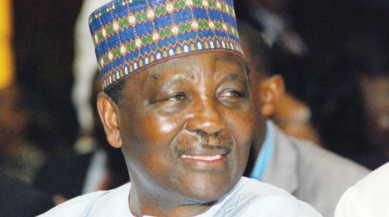The late Chukwuemeka Odumegwu Ojukwu’s insistence on regional control of the military led to the failure of the Aburi Accord to prevent the civil war (1967-1970), said war-time Head of State Gen. Yakubu Gowon.
According to him, the Federal Government rejected the demand because accepting it meant that the regions would operate semi independently of the federal military command. Ojukwu was military governor of the Eastern Region before the war.
The meeting in Aburi, Ghana, which led to the accord took place from January 4 to 5, 1967, with delegates from both sides of the divide making inputs.
However, the failure of the Aburi accord culminated in the civil war, which lasted from July 6, 1967, to January 15, 1970.
Speaking on Arise Television yesterday, Gowon said the federal delegation did not consider the meeting as a constitutional negotiation or a mandate to restructure the military authority.
The ex-military leader said: “We just went there as officers to agree on how to get back home and resolve a problem. That was my understanding, but that was not his.” Gowon said Ojukwu’s postmeeting interpretation of the agreements raised concerns about the unity and structure of Nigeria.
He said he did not know where Ojukwu got his version of the agreement from. The nonagenarian said he took ill after arriving in Nigeria from Aburi and that Ojukwu went on to make unauthorised statements about the accord.
Gowon said Ojukwu proposed that military commands in each region be under the authority of the governor, including himself in the East.
He said: “He wanted those zones to be commanded by the governor. “Say you have a military zone in the North, it would be commanded by the governor there, and in the East by him.
“Of course, we did not agree with that one.” Gowon said: “We just went there (Aburi), as far as we were concerned, to meet as officers and then agree to get back home and resolve the problem at home. That was my understanding. But that was not his (Ojukwu) understanding.
“Unfortunately, I know people would not believe it, I was having a serious attack of some kind of fever or whatever it was, and I could not make a decision when we arrived home.
“It was Ojukwu who made some statements about the Aburi Accord.” He added that a follow-up meeting to clarify the issues in the agreement was scheduled for Benin City, with invitations sent to Ojukwu and other regional governors. Gowon said Ojukwu declined the invitation, citing safety concerns.
He said: “I don’t know what accord he (Ojukwu) was reading because he came to the meeting with prepared papers of things he wanted, and of course, we discussed them one by one.
Agreed on some and disagreed on some. “For example, to give one of the major issues, we said that the military would be zoned, but the control… he wanted those zones to be commanded by the governor.” Ojukwu died on November 26, 2011 at the age of 78.















